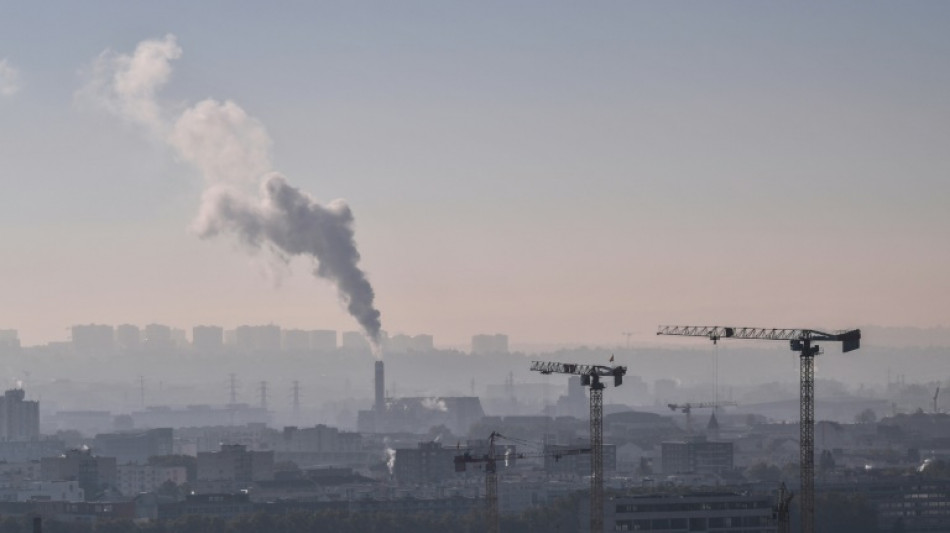
-
 Vonn to provide injury update as Milan-Cortina Olympics near
Vonn to provide injury update as Milan-Cortina Olympics near
-
France summons Musk for 'voluntary interview', raids X offices

-
 US judge to hear request for 'immediate takedown' of Epstein files
US judge to hear request for 'immediate takedown' of Epstein files
-
Russia resumes large-scale strikes on Ukraine in glacial temperatures

-
 Fit-again France captain Dupont partners Jalibert against Ireland
Fit-again France captain Dupont partners Jalibert against Ireland
-
French summons Musk for 'voluntary interview' as authorities raid X offices

-
 IOC chief Coventry calls for focus on sport, not politics
IOC chief Coventry calls for focus on sport, not politics
-
McNeil's partner hits out at 'brutal' football industry after Palace move collapses

-
 Proud moment as Prendergast brothers picked to start for Ireland
Proud moment as Prendergast brothers picked to start for Ireland
-
Germany has highest share of older workers in EU

-
 Teen swims four hours to save family lost at sea off Australia
Teen swims four hours to save family lost at sea off Australia
-
Ethiopia denies Trump claim mega-dam was financed by US

-
 Russia resumes strikes on freezing Ukrainian capital ahead of talks
Russia resumes strikes on freezing Ukrainian capital ahead of talks
-
Malaysian court acquits French man on drug charges

-
 Switch 2 sales boost Nintendo results but chip shortage looms
Switch 2 sales boost Nintendo results but chip shortage looms
-
From rations to G20's doorstep: Poland savours economic 'miracle'

-
 Russia resumes strikes on freezing Ukrainian capital
Russia resumes strikes on freezing Ukrainian capital
-
'Way too far': Latino Trump voters shocked by Minneapolis crackdown

-
 England and Brook seek redemption at T20 World Cup
England and Brook seek redemption at T20 World Cup
-
Coach Gambhir under pressure as India aim for back-to-back T20 triumphs

-
 'Helmets off': NFL stars open up as Super Bowl circus begins
'Helmets off': NFL stars open up as Super Bowl circus begins
-
Japan coach Jones says 'fair' World Cup schedule helps small teams

-
 Do not write Ireland off as a rugby force, says ex-prop Ross
Do not write Ireland off as a rugby force, says ex-prop Ross
-
Winter Olympics 2026: AFP guide to Alpine Skiing races

-
 Winter Olympics to showcase Italian venues and global tensions
Winter Olympics to showcase Italian venues and global tensions
-
Buoyant England eager to end Franco-Irish grip on Six Nations

-
 China to ban hidden car door handles in industry shift
China to ban hidden car door handles in industry shift
-
Sengun leads Rockets past Pacers, Ball leads Hornets fightback

-
 Waymo raises $16 bn to fuel global robotaxi expansion
Waymo raises $16 bn to fuel global robotaxi expansion
-
Netflix to livestream BTS comeback concert in K-pop mega event

-
 Rural India powers global AI models
Rural India powers global AI models
-
Equities, metals, oil rebound after Asia-wide rout

-
 Bencic, Svitolina make history as mothers inside tennis top 10
Bencic, Svitolina make history as mothers inside tennis top 10
-
Italy's spread-out Olympics face transport challenge

-
 Son of Norway crown princess stands trial for multiple rapes
Son of Norway crown princess stands trial for multiple rapes
-
Side hustle: Part-time refs take charge of Super Bowl

-
 Paying for a selfie: Rome starts charging for Trevi Fountain
Paying for a selfie: Rome starts charging for Trevi Fountain
-
Faced with Trump, Pope Leo opts for indirect diplomacy

-
 NFL chief expects Bad Bunny to unite Super Bowl audience
NFL chief expects Bad Bunny to unite Super Bowl audience
-
Australia's Hazlewood to miss start of T20 World Cup

-
 Bill, Hillary Clinton to testify in US House Epstein probe
Bill, Hillary Clinton to testify in US House Epstein probe
-
Cuba confirms 'communications' with US, but says no negotiations yet

-
 From 'watch his ass' to White House talks for Trump and Petro
From 'watch his ass' to White House talks for Trump and Petro
-
Trump says not 'ripping' down Kennedy Center -- much

-
 Sunderland rout 'childish' Burnley
Sunderland rout 'childish' Burnley
-
Musk merges xAI into SpaceX in bid to build space data centers

-
 Former France striker Benzema switches Saudi clubs
Former France striker Benzema switches Saudi clubs
-
Sunderland rout hapless Burnley

-
 Costa Rican president-elect looks to Bukele for help against crime
Costa Rican president-elect looks to Bukele for help against crime
-
Hosts Australia to open Rugby World Cup against Hong Kong


Nearly entire global population breathing polluted air: WHO
A full 99 percent of people on Earth breathe air containing too many pollutants, the World Health Organization said Monday, blaming poor air quality for millions of deaths each year.
Fresh data from the UN health agency showed that every corner of the globe is dealing with air pollution, although the problem is much worse in poorer countries.
"Almost the entire global population (99 percent) breathes air that exceeds WHO air quality limits, and threatens their health," the agency said in a statement.
In its previous report four years ago, WHO had already found that over 90 percent of the global population was affected, but it has since tightened its limits, it said.
"The evidence base for the harm caused by air pollution has been growing rapidly and points to significant harm caused by even low levels of many air pollutants," WHO said.
While UN data last year indicated that pandemic lockdowns and travel restrictions caused short-lived improvements in air quality, WHO said air pollution remains a towering problem.
"After surviving a pandemic, it is unacceptable to still have seven million preventable deaths and countless preventable lost years of good health due to air pollution," Maria Neira, the head of the WHO's department of public health and environment, said in a statement.
WHO's study provides air quality data from more than 6,000 cities and towns across 117 countries.
The findings were alarming, the organisation said, and highlighted the importance of rapidly curbing fossil fuel use.
- 'Healthier energy systems' -
WHO chief Tedros Adhanom Ghebreyesus stressed that worries over soaring energy prices, due in part to Russia's invasion of Ukraine, should help propel change.
"Current energy concerns highlight the importance of speeding up the transition to cleaner, healthier energy systems," he said in a statement.
"High fossil fuel prices, energy security, and the urgency of addressing the twin health challenges of air pollution and climate change, underscore the pressing need to move faster towards a world that is much less dependent on fossil fuels."
The report provides data on concentrations of dangerous particulate matter with a diameter of between 2.5 and 10 micrometres (PM10), and particles with a diameter of less than 2.5 micrometres (PM2.5).
PM2.5 includes toxins like sulfate and black carbon, which pose the greatest health risks since they can penetrate deep into the lungs or cardiovascular system.
And for the first time, the report also provides ground measurements of annual mean concentrations of nitrogen dioxide (NO2), a common urban pollutant, which is associated with respiratory diseases, particularly asthma.
The report found problems related to particulate pollution were far worse in poorer countries, but that most cities had trouble with nitrogen dioxide.
While the air in 17 percent of cities in high-income countries fell below WHO's air quality guidelines for PM2.5 or PM10, less than one percent of cities in low and middle-income countries complied with the recommended thresholds, the report said.
Out of the around 4,000 cities across 74 countries that collected NO2 data, measurements meanwhile showed only 23 percent of people breathed annual average concentrations of the gas that met levels in WHO's recently updated guidelines.
P.Serra--PC




